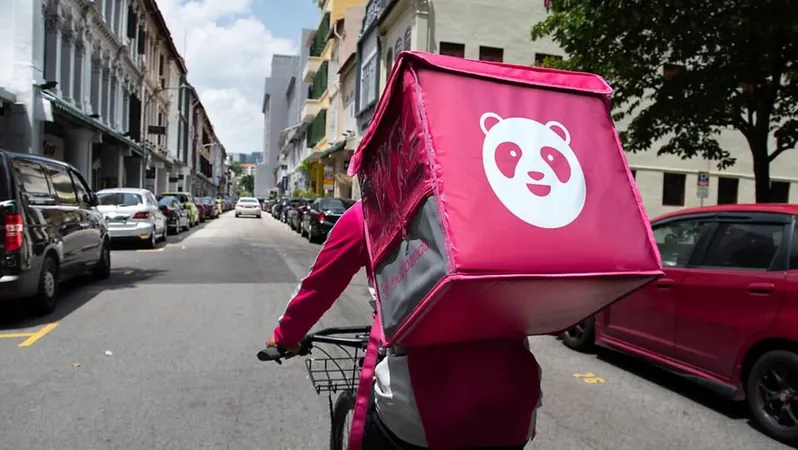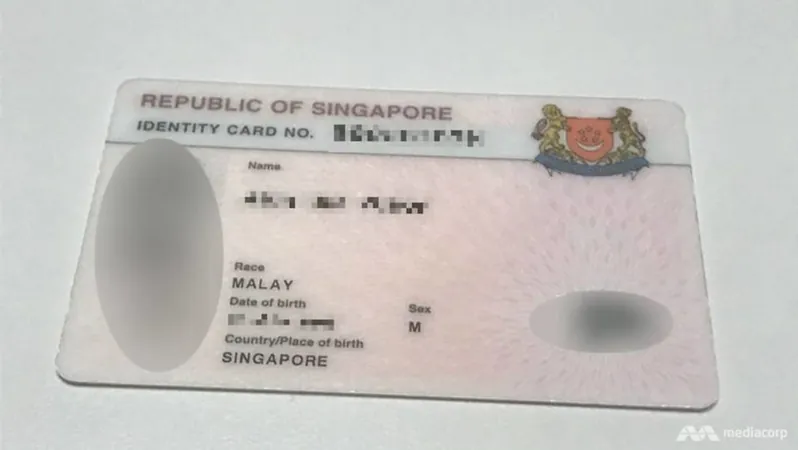
Taiwan Rejects Uber-Foodpanda Merger Over Monopoly Fears: What It Means for the Food Delivery Market
2024-12-25
Author: Li
TAIPEI: In a groundbreaking decision, Taiwan's Fair Trade Commission (FTC) announced on Wednesday (December 25) that it has blocked Uber's ambitious plan to acquire Delivery Hero’s Foodpanda, highlighting significant concerns about market competition and potential monopolistic behaviors.
The US-based ride-hailing behemoth aimed to seal the deal, valued at an eye-watering US$950 million, by the first half of 2025, effectively positioning itself as the dominant force in Taiwan's food delivery sector. However, FTC Vice Chairman Chen Chi-ming voiced strong reservations about the implications of such a merger during a press conference, stating, "If Uber acquires Foodpanda, it will be completely unrestrained by competition."
The FTC's analysis raised alarm bells over the potential for UberEats, post-merger, to increase prices for consumers and heighten commissions for restaurants. With the combined market share of the two companies projected to exceed a staggering 90%, the possibility for fair competitiveness would evaporate, Chen warned. “No corrective measures could sufficiently ensure competition would be maintained,” he added.
Uber initially framed this merger as one of the most significant international investments for Taiwan outside the semiconductor realm—a claim that now appears drastically diminished in light of the FTC's decision. This sentiment was echoed within Taiwan's delivery trade union, whose spokesperson, Su Po-hao, applauded the ruling, proclaiming it secured "greater benefits for the future of the food delivery industry." They had previously expressed concerns that the merger could exacerbate existing disparities, leading to adverse outcomes for delivery riders, vendors, and consumers alike.
Moreover, in a separate agreement, Uber has also committed to acquiring US$300 million in newly issued ordinary shares of Delivery Hero, which shows that while the merger may have been thwarted, the financial dealings between the companies continue.
As the food delivery landscape continues to evolve, this decision serves as a crucial reminder of the delicate balance necessary to maintain healthy competition in a rapidly consolidating market. The implications for consumers and businesses in Taiwan's food delivery sector will remain a point of focus, sparking discussions on how to foster a competitive environment while embracing technological advancements.
Will this decision set a precedent for other countries grappling with similar monopoly concerns? Only time will tell, but for now, Taiwan has positioned itself as a critical player in the global dialogue on competition and consumer rights. Keep your eyes peeled for more updates!



 Brasil (PT)
Brasil (PT)
 Canada (EN)
Canada (EN)
 Chile (ES)
Chile (ES)
 España (ES)
España (ES)
 France (FR)
France (FR)
 Hong Kong (EN)
Hong Kong (EN)
 Italia (IT)
Italia (IT)
 日本 (JA)
日本 (JA)
 Magyarország (HU)
Magyarország (HU)
 Norge (NO)
Norge (NO)
 Polska (PL)
Polska (PL)
 Schweiz (DE)
Schweiz (DE)
 Singapore (EN)
Singapore (EN)
 Sverige (SV)
Sverige (SV)
 Suomi (FI)
Suomi (FI)
 Türkiye (TR)
Türkiye (TR)